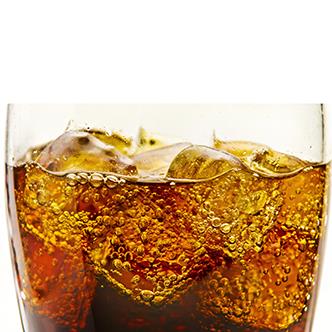
Too many diet drinks may take a toll on the brain, based on a recent study that linked two or more diet drinks a day to increased risk for stroke and dementia.
Published in the American Heart Association journal Stroke, this study looked at the long-term impact of sugar and artificially sweetened beverages on the brain.
While we know that too many sugary drinks have a negative impact on heart health, studies suggest they may increase risk for stroke and dementia. A few studies have also linked artificially sweetened beverages like diet soda to increased risk for stroke. However, evidence has been conflicting and the issue remains highly debated.
To help settle the debate, researchers analyzed data from the Framingham Heart Study, which included more than 4,300 adults in Framingham, Massachusetts.
Between 1991 and 2001, participants completed questionnaires on their diet and beverage consumption. Researchers then followed participants for ten more years, tracking any cases of stroke and dementia.
Since dementia is rare in younger adults, the study included two groups of adults. One group consisted of 1,484 adults over 60 years old, who were followed for dementia. The second group included 2,888 adults 45 years or older, who were followed for stroke.
Overall, there were 97 strokes and 81 cases of dementia observed during the follow-up period. After analysis, researchers found that diet beverages were associated with increased risk of stroke and dementia, while sugary beverages were not.
Compared to adults who consumed no diet beverages, those consuming 2 or more diet drinks a day had nearly three times greater risk of stroke and dementia.
However, it’s important to consider some key limitations of the study. As authors explain, the study doesn’t show that diet beverage consumption directly causes increased risk for stroke and dementia. It also included self-reported data, which is not 100% reliable, and doesn’t rule out all potential factors that could impact this association. For example, researchers found that adults with diabetes were much more likely to consume diet beverages than those without diabetes. Therefore, it’s possible that diabetes is more to blame for high rates of stroke and dementia than diet soda.
Researchers also note that when dietary questionnaires were completed during the ‘90s, only three artificial sweeteners were approved by the U.S. Food and Drug Administration—saccharin, acesulfame-K and aspartame. Since then, newer sweeteners have entered the market, which were not assessed in this study.
Still, findings are intriguing, as experts continue to explore the long-term effects of beverage consumption on health. In the meantime, experts stand by recommendations to limit consumption of both sugary and artificially sweetened beverages to promote good health.